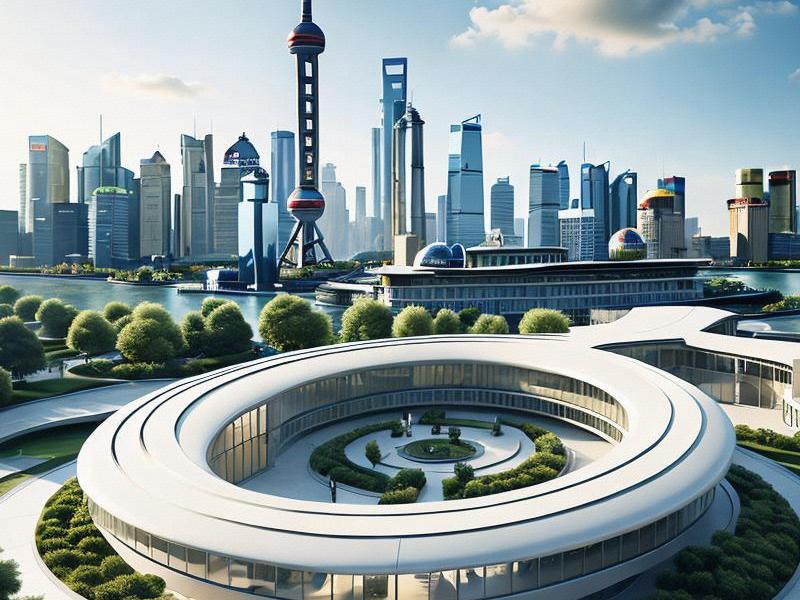
Shanghai, the bustling metropolis on the banks of the Huangpu River, has long been a symbol of China's economic prowess. In recent years, however, it has been steadily carving out a new identity as a global innovation hub. This transformation is not just about economic growth but also about fostering a culture of innovation, embracing cutting-edge technologies, and enhancing the quality of urban life.
The journey towards becoming a global innovation hub has been deliberate and strategic. Shanghai has leveraged its unique advantages, including its status as a major financial center, its large and diverse talent pool, and its openness to international collaboration. The city has implemented a series of policies and initiatives aimed at attracting top talent, nurturing startups, and supporting research and development (R&D) activities.
One of the cornerstones of Shanghai's innovation strategy is the Zhangjiang Hi-Tech Park, often referred to as "China's Silicon Valley." This 25-square-kilometer area has become a magnet for high-tech enterprises, research institutions, and talented individuals. It houses over 2,000 companies, including many leading names in the fields of information technology, biotechnology, and new materials. The park's infrastructure, which includes state-of-the-art laboratories, incubators, and co-working spaces, provides an ideal environment for innovation and collaboration.
In addition to Zhangjiang Hi-Tech Park, Shanghai has established several other innovation clusters, such as the Shanghai International Automobile City in Anting and the Shanghai Zhangjiang Comprehensive National Science Center. These clusters are designed to foster interdisciplinary research and development, bringing together experts from various fields to tackle complex challenges and drive technological advancements.
上海龙凤论坛爱宝贝419 The city's commitment to innovation is also evident in its efforts to attract and retain top talent. Shanghai has implemented a series of policies aimed at making the city more attractive to global talent. These include offering preferential policies for foreign professionals, such as visa exemptions and housing subsidies, and establishing international schools and hospitals to meet the needs of expatriate families. The city's vibrant cultural scene, rich history, and high quality of life further enhance its appeal to talented individuals from around the world.
Shanghai's focus on innovation extends beyond technology and research. The city is also investing heavily in urban development to crteeaa more livable and sustainable environment. Smart city initiatives are at the forefront of this effort, leveraging advanced technologies such as artificial intelligence (AI), big data, and the Internet of Things (IoT) to improve urban management and enhance the quality of life for residents.
One notable example is the "Shanghai Smart City" project, which aims to integrate digital technologies into all aspects of urban life. This includes smart transportation systems that use real-time data to optimize traffic flow, smart energy grids that reduce energy consumption, and smart healthcare systems that provide personalized medical services. These initiatives not only improve efficiency and convenience but also contribute to environmental sustainability and social well-being.
The impact of Shanghai's innovation efforts is already being felt both within China and on the global stage. Domestically, the city has become a leader in high-tech industries, driving economic growth and creating new opportunities for employment and entrepreneurship. Its success has also inspired other cities across China to adopt similar strategies, contributing to the country's overall transformation into an innovation-driven economy.
上海贵人论坛 Globally, Shanghai is increasingly recognized as a key player in the international innovation ecosystem. The city hosts numerous international conferences, exhibitions, and forums, providing a platform for global collaboration and knowledge exchange. It is also home to a growing number of multinational corporations and research institutions, which contribute to its status as a hub for global innovation.
One of the most significant milestones in Shanghai's journey to becoming a global innovation hub was its selection as one of the first three pilot cities for the China (Shanghai) Pilot Free-Trade Zone in 2013. This initiative aimed to promote trade and investment liberalization, improve the business environment, and enhance the city's competitiveness on the global stage. The free-trade zone has attracted a large number of foreign investors and has become a model for other cities in China.
Another important development is the establishment of the Shanghai Stock Exchange's STAR Market (Science and Technology Innovation Board), which was launched in July 2019. The STAR Market is designed to support the growth of high-tech and innovative enterprises by providing them with access to capital markets. It has already attracted a number of high-profile IPOs, including those from companies in the fields of biotechnology, artificial intelligence, and new energy.
上海品茶网 Despite its many achievements, Shanghai faces several challenges in its quest to become a global innovation hub. One of the main challenges is maintaining a competitive edge in the rapidly evolving global technology landscape. This requires continuous investment in R&D, fostering a culture of innovation, and attracting and retaining top talent.
Another challenge is addressing the environmental and social impacts of rapid urbanization. While smart city initiatives have contributed to sustainability, the city must also address issues such as air pollution, traffic congestion, and housing affordability to ensure a high quality of life for all residents.
In conclusion, Shanghai's journey to becoming a global innovation hub is a testament to the city's vision, determination, and ability to adapt to a changing world. By leveraging its unique advantages, implementing strategic initiatives, and fostering a culture of innovation, Shanghai has positioned itself as a leader in the global innovation ecosystem. As the city continues to evolve, it will undoubtedly play an increasingly important role in shaping the future of technology, urban development, and global influence.
